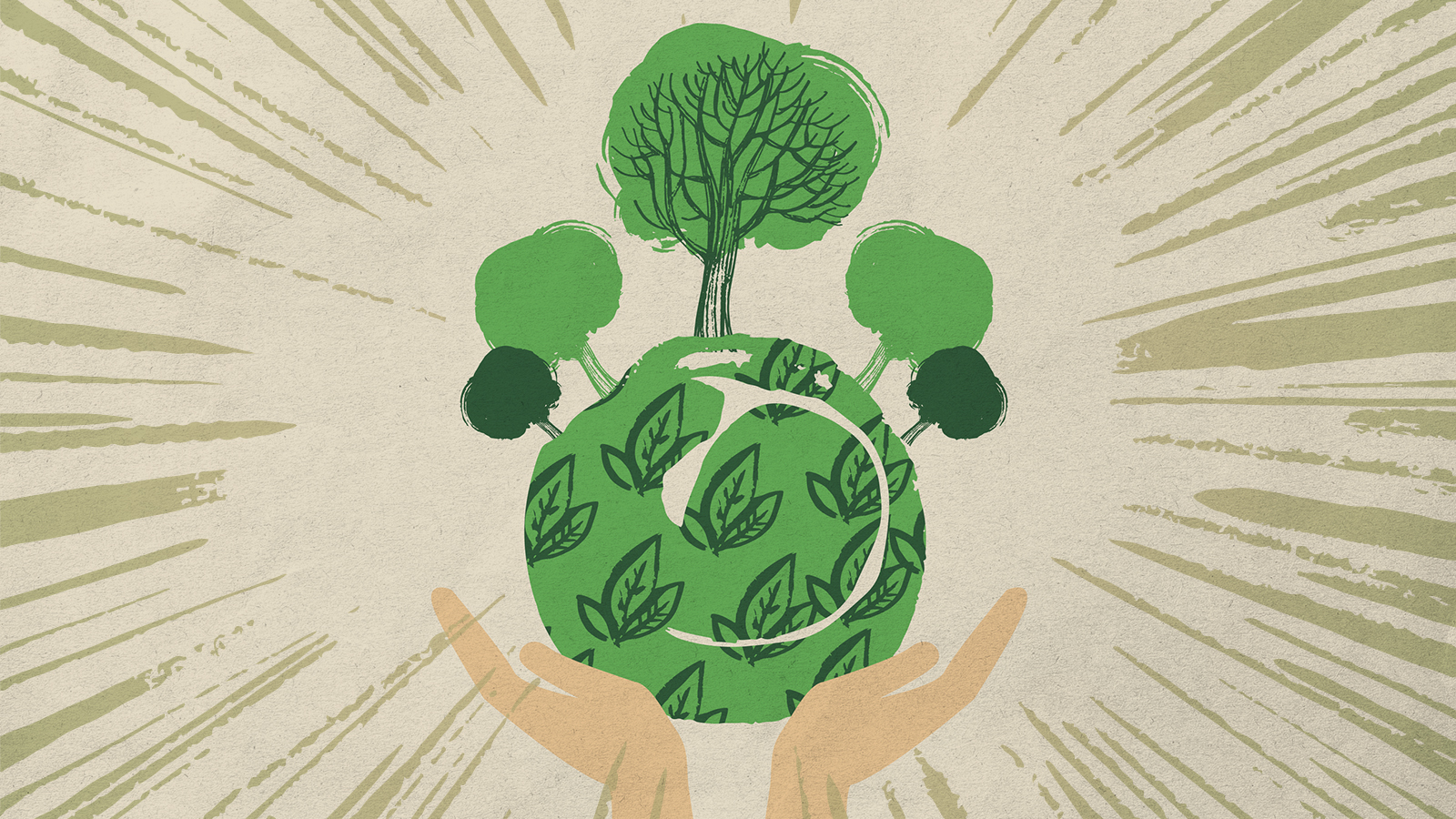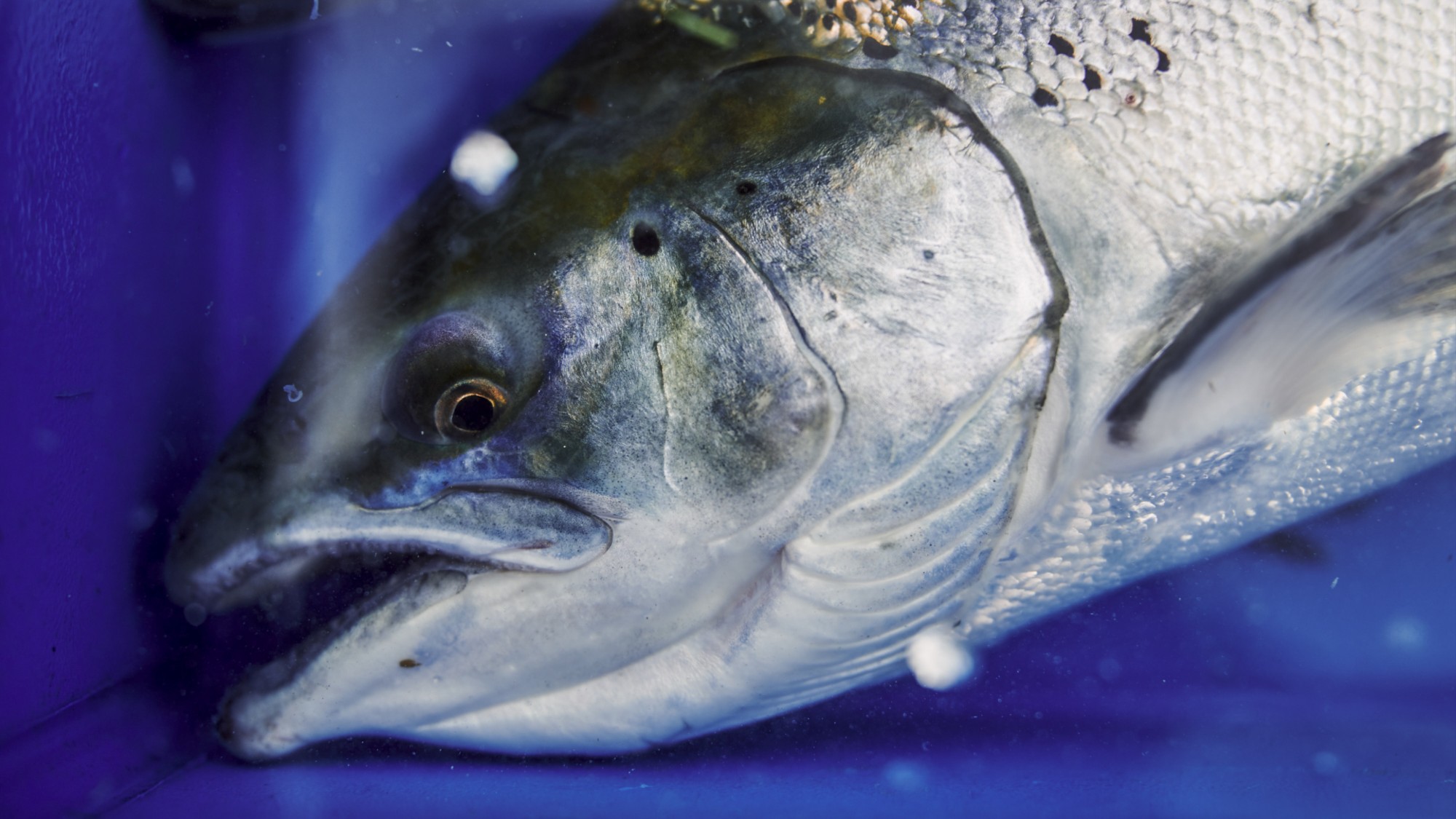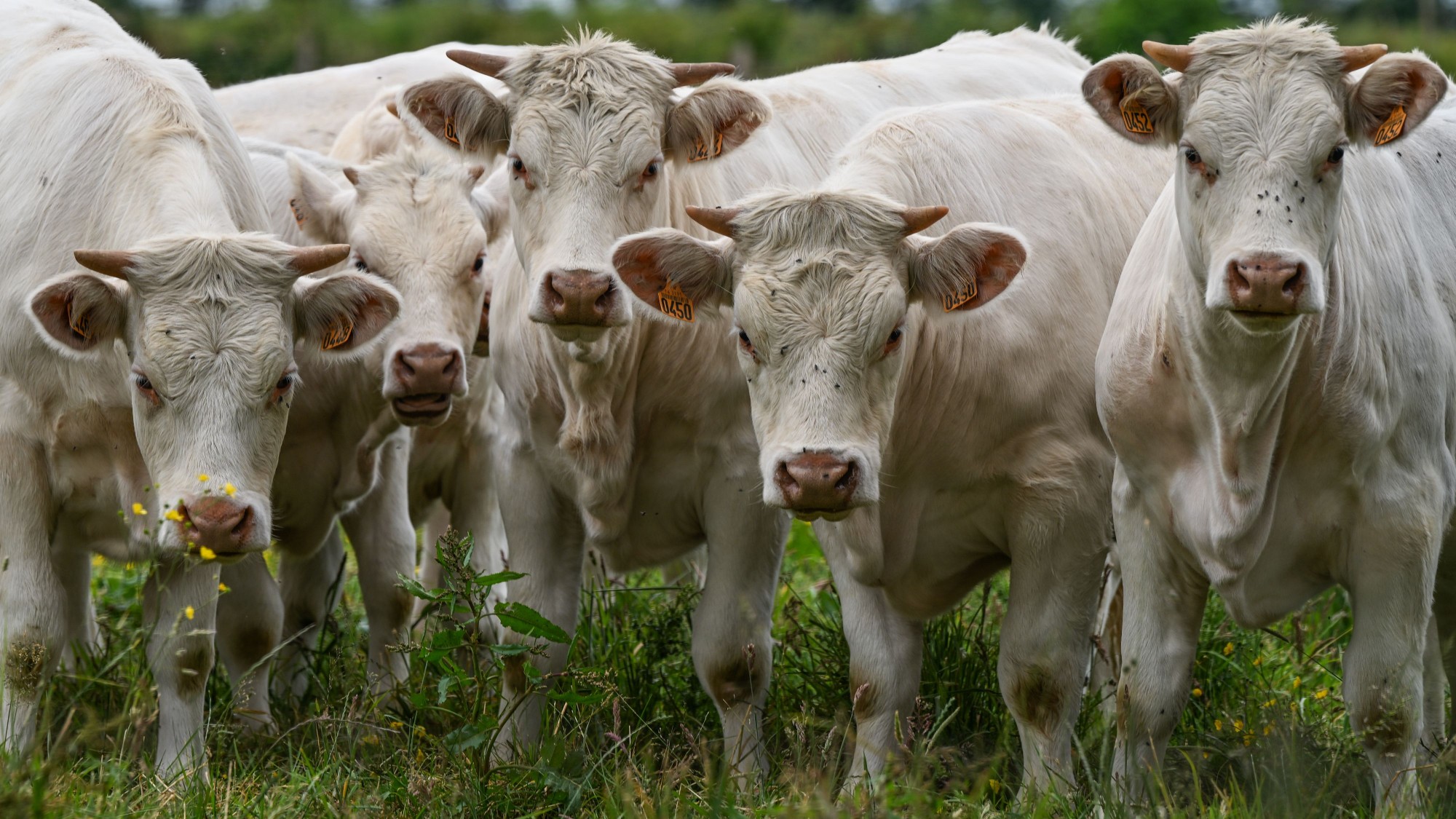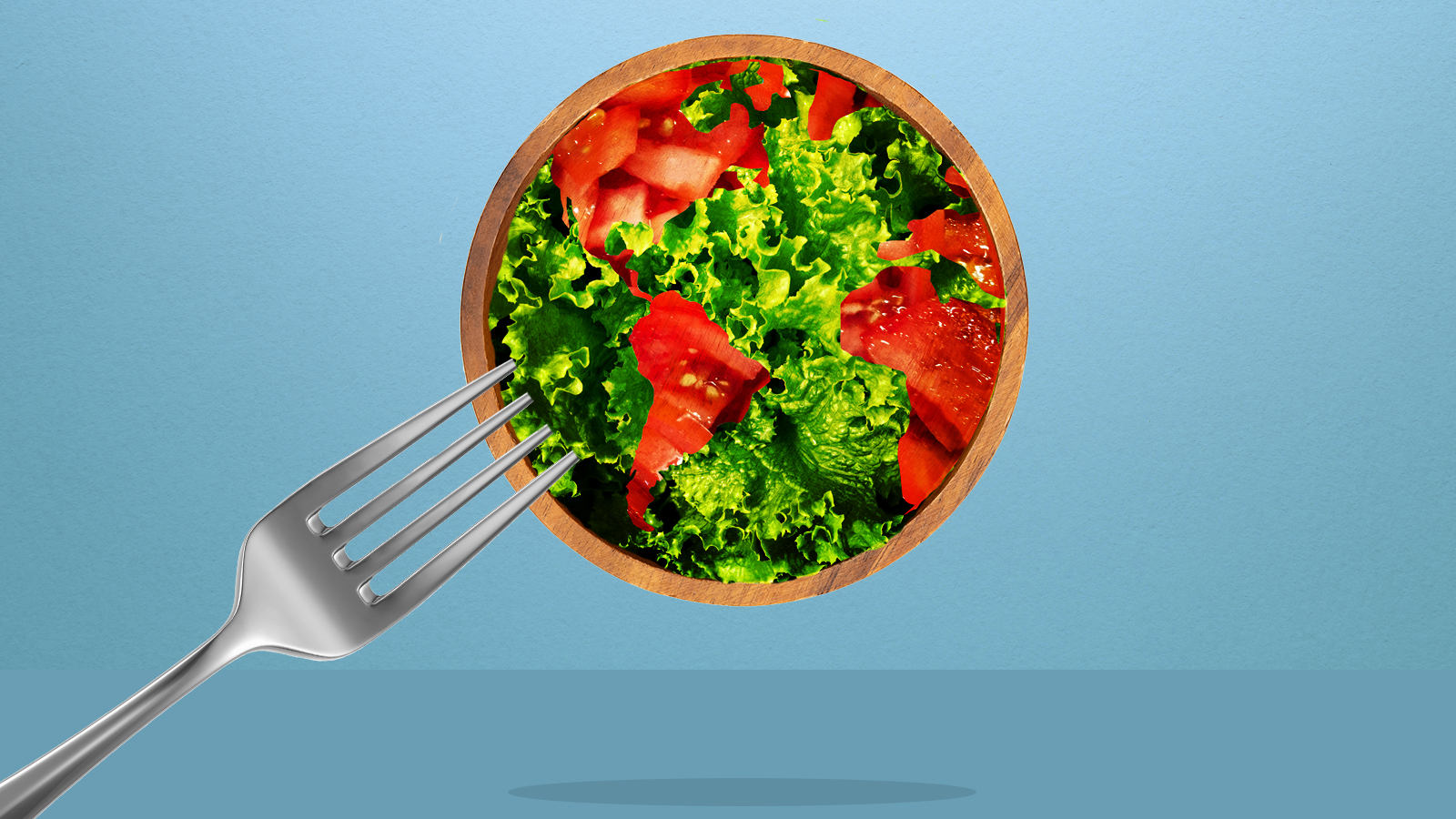I tested 5 ways to make my life a little more eco-friendly. This is what I found.
Celebrate Earth Day with these 5 easy solutions to everyday problems


A free daily email with the biggest news stories of the day – and the best features from TheWeek.com
You are now subscribed
Your newsletter sign-up was successful
As a wise man once said, "If there was a problem, yo, I'll solve it." This Earth Day, let's take that same proactive attitude and apply it to finding eco-friendly solutions for everyday issues, whether it's using too much water in the shower or relying on single-use products. Together, we really can make a difference.
Note: For the following product recommendations, I used samples provided by the companies. All are cruelty free.
What's the problem?
The plastic hand sanitizer containers I keep in my purse are tiny, and I go through them so fast. It feels wasteful to constantly throw them away.
The Week
Escape your echo chamber. Get the facts behind the news, plus analysis from multiple perspectives.

Sign up for The Week's Free Newsletters
From our morning news briefing to a weekly Good News Newsletter, get the best of The Week delivered directly to your inbox.
From our morning news briefing to a weekly Good News Newsletter, get the best of The Week delivered directly to your inbox.
Here's a solution:
First, check and see if the container is recyclable before you toss it (and if it is, make sure it's empty before putting it in the bin). When buying hand sanitizer, check to see if the company uses recycled plastic for its containers. PAUME does, and is also certified plastic neutral (they work with rePurpose Global to remove as much plastic from the world's oceans and landfills as they put into it). Their antibacterial hand gel is made with nourishing aloe vera, healing witch hazel, and ethyl alcohol (that's what gets the bacteria and viruses), and I recommend getting the travel bottle and refill bag (it fills the bottle more than five times, for about 425 uses). Some sanitizers sap your hands of every drop of moisture, but that's not an issue with PAUME — the antibacterial gel always leaves my hands feeling so soft, it's almost like using lotion.
What's the problem?
I'm worried about wasting too much water in the shower.
Here's a solution:
This is a valid concern; the Environmental Protection Agency says the average shower in the United States lasts for about eight minutes, and conventional showerheads spray out more than two gallons of water every minute — that's a lot of H2O. One way to save water in the shower is to stop washing by simply lathering up faster, or stop washing your hair every day. That's a tough one when your hair is oily, which is why I was intrigued by Swair. A showerless shampoo, Swair swears you can use it even after working out, when your hair is a sweaty mess. It's an alternative to dry shampoo, which masks dirt — in this case, you spray the product on, vigorously towel dry to remove sweat/grime/whatever else is in your hair, and then blow-dry or air dry.
After working out for 45 minutes while wearing a hat, I tried Swair, and when I was done all I could think was, "What kind of sorcery is this?!" My formerly sweaty hair looked washed, and it took me all of 35 seconds to get it this way, without even a drop of water involved. This could be a game-changer for people who often find themselves running around town, darting from the gym to the office or a night out with friends, and Swair estimates its product allows customers to cut down on traditional hair washing by at least twice a week.
A free daily email with the biggest news stories of the day – and the best features from TheWeek.com
What's the problem?
It's that pesky plastic again — I want to be more eco-friendly when it comes to buying cleaning supplies, but so many products are packaged in plastic.
Here's a solution:
To start, take a look at the labels on the containers you already have in your house to see if they can be recycled. For a permanent solution, try a refillable system, like Cleancult's — they sell their products, like all-purpose cleaner and laundry detergent, in paper-based cartons. All you have to do is take the carton, pour the contents into reusable glass bottles, and you're in business. Once you're done, the refill cartons can be recycled (even the resealable cap is plant-based).
Cleancult says its product ingredients are all-natural, and the formulas include coconut, essential oils, and other biodegradable elements. Is it weird to be obsessed with soap? Because I adore Cleancult's foaming hand soap (I'm currently using the lavender scent, which is very light). The soap is sudsy and ultra-moisturizing and a tiny bit luxurious — if I close my eyes, I can pretend I'm at the spa, not standing at the kitchen sink.
What's the problem?
I'm constantly using single-use cotton pads, for everything from taking off my eye makeup to removing nail polish. These pads are the exact opposite of eco-friendly — it takes a lot of resources to make this one-off product.
Here's a solution:
Cotton rounds are a vital part of many beauty routines, so it comes as no surprise that every year, an estimated 87 billion cotton rounds are used and then tossed in the trash. LastObject has created a sustainable, reusable alternative called LastRound. These rounds are 30 percent cotton fiber and 70 percent wood fiber, and LastObject says each case of seven is the equivalent of 1,750 single-use rounds.
To use, just wet the round (with water, toner, nail polish remover, etc.) and go to town. The new LastRound Pro pads are black, making it easier to take off highly pigmented makeup or nail polish (they can stain the original LastRound pads, which are white). To really put these to the test, I applied a bright red polish to one of my nails, knowing that if any color was going to stain the pad, it was OPI's Over & Over A-Gwen. I placed a small amount of remover on the round, and could immediately feel the stiff pad soften. The nail polish wiped right off, but there was no evidence of it on the pad. It almost felt like I was performing a magic trick, to a delighted audience of one (me!).
What's the problem?
Mother's Day and Father's Day are coming up, and I'd like to give my parents the gift of self-care using natural ingredients, but need some ideas.
Here's a solution:
As someone with sensitive skin whose parents also have sensitive skin, I feel this one deep in my soul. It can be mind-boggling looking at ingredient lists, hoping that this time, there won't be a component that makes your skin itch or turn red.
I recently learned about the Pacific Shaving Co., which touts itself as caring as much about your skin as it does the environment. They put their products in smaller containers, so fewer raw materials are used, but the actual formulas still pack a punch. I enlisted my 16-year-old nephew for help with the testing of the Natural Shaving Cream, which is a vegan formula using certified organic ingredients, like aloe barbadensis leaf juice. He raved about it, gushing over how smooth his skin felt. Since he's new to the shaving game, I also had him try the Nick Stick, which he enjoyed (he wouldn't divulge just how many times he used it, but my sister revealed that for the two minutes he couldn't find it one morning, he went into panic mode).
For a Father's Day gift, I would suggest picking up a few Pacific Shaving Co. items (make sure to include a razor!) and putting them in a nice basket, along with dad's favorite snacks and beverages.
As a lover of our national parks, I was excited to learn about fragrance company Caswell-Massey partnering with Yellowstone Forever for a special collaboration. The Yellowstone Collection features five strong, distinct scents derived from actual living florals unique to the park: There's Old Faithful, Canyon, Lake, Tower Fall, and Mammoth Hot Springs. The collection is comprised of fragrance tonics and moisturizing oils, and Caswell-Massey says its team studied the florals and then used sustainably-sourced materials to recreate the scents so they are "nature identical."
The Yellowstone Fragrance Tonic Discovery Set is a great gift for moms who like having options and want to sample a little bit of everything — all five scents are in this set, which comes in a sturdy blue box. I also found that the moisturizing oils, made of organic argan and jojoba, absorbed almost immediately into my skin, leaving behind a powerful but pleasant scent — if you close your eyes, you can imagine being just steps away from Old Faithful. Added bonus: Proceeds from these purchases will support Yellowstone Forever's plant research and conservation efforts.
Catherine Garcia has worked as a senior writer at The Week since 2014. Her writing and reporting have appeared in Entertainment Weekly, The New York Times, Wirecutter, NBC News and "The Book of Jezebel," among others. She's a graduate of the University of Redlands and the Columbia University Graduate School of Journalism.
-
 Buddhist monks’ US walk for peace
Buddhist monks’ US walk for peaceUnder the Radar Crowds have turned out on the roads from California to Washington and ‘millions are finding hope in their journey’
-
 American universities are losing ground to their foreign counterparts
American universities are losing ground to their foreign counterpartsThe Explainer While Harvard is still near the top, other colleges have slipped
-
 How to navigate dating apps to find ‘the one’
How to navigate dating apps to find ‘the one’The Week Recommends Put an end to endless swiping and make real romantic connections
-
 The dark side of salmon farming
The dark side of salmon farmingIn the Spotlight Scottish salmon is the UK's biggest global food export, but concern is growing over record-high death rates, escapes and environmental impact
-
 Bovaer: the new dairy additive prompting boycotts and conspiracy theories
Bovaer: the new dairy additive prompting boycotts and conspiracy theoriesIn The Spotlight Manufacturer says it wants to reduce methane emissions from cows but social media criticism has grown
-
 Despite the pandemic and environmental alarm, the cruise industry is soaring
Despite the pandemic and environmental alarm, the cruise industry is soaringIn the Spotlight Royal Caribbean, Carnival and Norwegian all went into 2024 with record high bookings
-
 Are plug-in hybrids better for America's climate goals?
Are plug-in hybrids better for America's climate goals?Talking Points The car industry considers a 'slower, but more plausible path' to reducing emissions
-
 2023: the year of overtourism backlash
2023: the year of overtourism backlashThe Explainer People are traveling again … maybe too much
-
 Does thinking globally mean eating locally?
Does thinking globally mean eating locally?Talking Point Local eating has its benefits but is not the end-all of responsible food consumption
-
 Maui travel and the ethics of tourism
Maui travel and the ethics of tourismSpeed Read Tourism in Hawaii is a double-edged sword, especially in the wake of the fires
-
 Is protected land really protected?
Is protected land really protected?Speed Read Conservation is complicated
